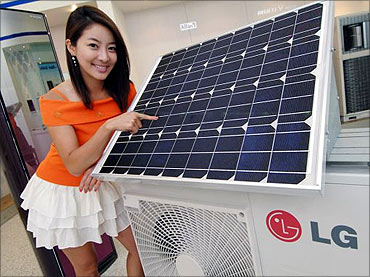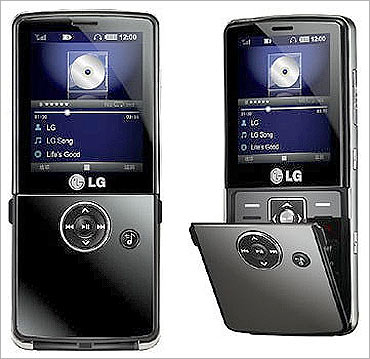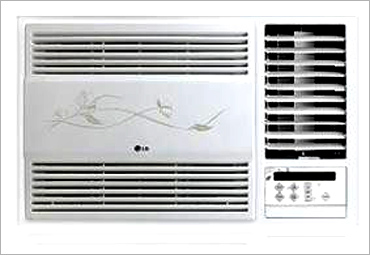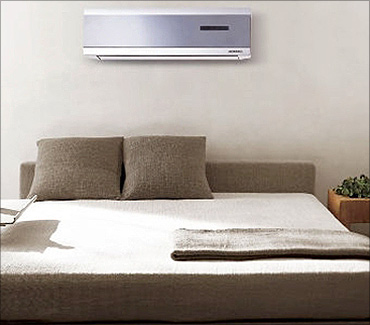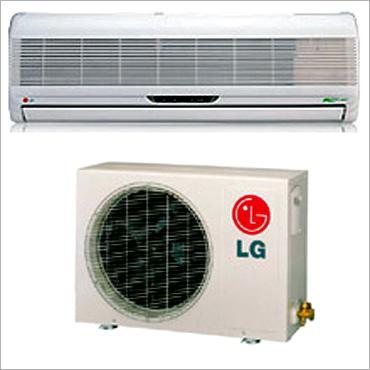 | « Back to article | Print this article |
India to beat US to become No.1 in ACs: LG
Last updated on: January 28, 2011 19:13 IST
Korean consumer durables major LG on Friday said it will invest Rs 800 crore (Rs 8 billion) in 2011 to add capacity and for other purposes in India, which it expects will become its largest air-conditioner market in the world by next year ahead of the current leader US. The company is also aiming to more than double its annual revenue to cross a figure of Rs 40,000 crore (Rs 400 billion) in India from all verticals in the next four years. "India is a strategic market for LG. We will invest Rs 800 crore this year for expanding our manufacturing capacities and other general purposes. We will add new lines in almost all segments," LG Electronics India Ltd (LGEIL) Chief Operating Officer Yasho V Verma said. Click NEXT to read on
India to beat US to become No.1 in ACs: LG
Last updated on: January 28, 2011 19:13 IST
Flat panels, mobile handsets and rooms ACs will be the major growth drivers for the company, he added. On its sales targets, Verma said: "We are expecting Rs 20,000 crore (Rs 200 billion) turnover this year and in four years, we want to achieve Rs 40,000 crore turnover." The company had registered a total turnover of Rs 16,000 crore (Rs 160 billion) in 2010. It currently has two production facilities in Greater Noida and Pune. On its AC business, LG Electronics Vice President (AC Overseas Marketing) Sewoo Park said: "The Indian market is globally number two in room AC category and it contributes about 18 per cent in our global sales. I hope, next year the Indian market becomes the number one in our global sales." Click NEXT to read on
India to beat US to become No.1 in ACs: LG
Last updated on: January 28, 2011 19:13 IST
The global AC sales of the company stood at around $3 billion in last year and the contribution from the US was 30-40 per cent, he added. The company estimates the current Indian AC market to be around 3.4 million units annually, valued at Rs 7,200 crore, which is growing at 26 per cent. LGEIL had about 29 per cent share in 2010 in the domestic AC market and is aiming for 32 per cent share by this year. It today launched a range of 51 split and window ACs, priced between Rs 10,000 and Rs 55,000. "We are targeting a turnover of Rs 3,500 crore (Rs 35 billion) from AC sales this year compared to Rs 2,500 crore (Rs 25 billion) in 2010. Eventually we are aiming for 36 per cent share by 2014," LGEIL Business Head (Airconditioners) Ajay Bajaj said. Click NEXT to read on
India to beat US to become No.1 in ACs: LG
Last updated on: January 28, 2011 19:13 IST
When asked if the company would expand its AC production capacity in India, Park said: "To keep our projected market share by 2014, we will need about 5 million units production capacity of ACs." He, however, declined to share details whether the company would expand the existing facilities or set up a new unit for enhancing its capacity. LGEIL currently has two production facilities in Greater Noida and Pune with a combined AC manufacturing capability of 2 million units a year. Click NEXT to read on
India to beat US to become No.1 in ACs: LG
Last updated on: January 28, 2011 19:13 IST
LG Electronics India said it will hike the prices of its air-conditioners by about five per cent from February 1 to offset the impact of high raw material costs. "Globally commodity prices are firming up. Usually 70 per cent of the rise is passed on to the consumers and the rest is absorbed by us. We will increase the rates of our ACs from February by five per cent," Ajay Bajaj, LG Electronics India Ltd (LGEIL) Business Head (Air conditioners) said. The company had earlier hiked the prices in December by five per cent, he added. Earlier this week, another air-conditioner maker Hitachi had announced hiking the prices of its entire range of products by up to four per cent due to high input costs. The products of Hitachi are available in the range of about Rs 23,000 to Rs 48,000 in India.
© Copyright 2024 PTI. All rights reserved. Republication or redistribution of PTI content, including by framing or similar means, is expressly prohibited without the prior written consent.
